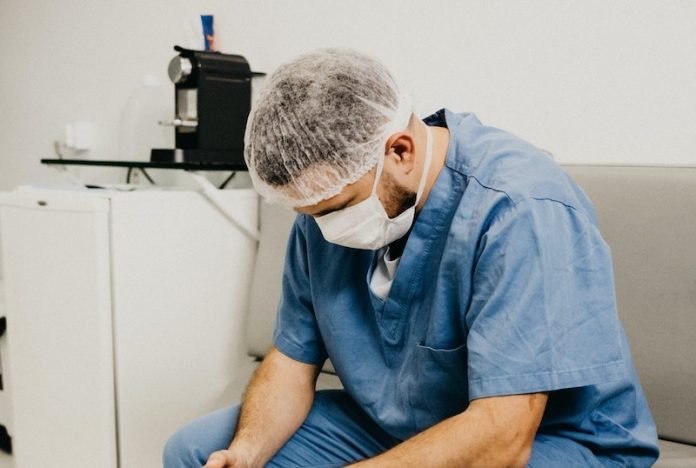
In a recent study from Rush University and elsewhere, researchers found that a very high level of a protein known as suPAR in the blood of patients with COVID-19 may be a predictor of severe respiratory failure.
The findings suggest suPAR could be a potential predictor for which patients with COVID-19 will need to be put on ventilators to help them breathe.
The study is published in Critical Care. One author is Jochen Reiser, MD, Ph.D.
Soluble urokinase plasminogen activator receptor, aka suPAR, is produced in the endobronchial tree in the lungs and by immune cells in the bone marrow and repeatedly has been shown to harm kidneys.
Previous research has found that chronically elevated blood levels are linked to the development of chronic kidney disease.
But a high plasma suPAR also increases the risk for acute kidney injury—a sudden decline in kidney function that can be a severe side effect of general medical procedures.
There is an increasing number of patients with severe COVID-19 who also develop kidney problems, which is leading researchers to investigate the connection between COVID-19, suPAR, and kidney disease.
In the study, the team tested suPAR levels in 15 patients when they were admitted or tested for COVID-19. They measured 57 patients for suPAR and followed them in their clinical course.
Time to intubation was followed and found to be shorter in patients with a higher plasma suPAR.
Previous research has shown that suPAR is linked to poor outcomes from acute respiratory distress syndrome (a condition in many patients with severe COVID-19) and poor lung functioning in critically ill patients.
The link between suPAR and respiratory failure suggests a way to help manage patients with COVID-19.
The team says If they measure suPAR as part of diagnosing COVID-19, they may know whom to watch more and whom to send home.
Plasma suPAR levels give scientists a window into the course of the disease, allowing for improved monitoring and applying new and supportive treatments early.
Copyright © 2020 Knowridge Science Report. All rights reserved.



